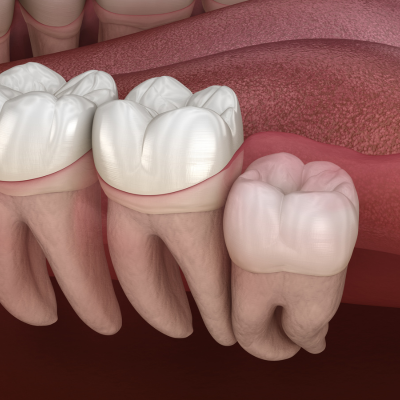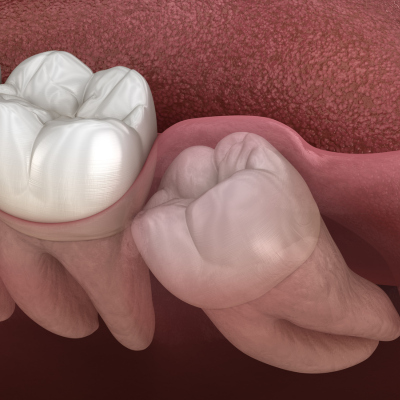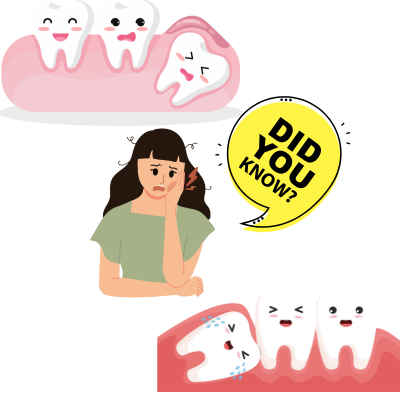In This Article
Wisdom Teeth: What You Need to Know
Jun 10, 2023
Growing Up and Understanding Wisdom Teeth
When you're in your late teens or early twenties, many exciting things start happening in your life. You might be going to college, starting your first job, or learning to be an adult. However, one crucial thing that often gets overlooked during this time - your wisdom teeth begin to grow. While this isn't usually celebrated, it's essential to becoming an adult. These teeth can sometimes cause discomfort and complications. But if you understand why we have wisdom teeth and what happens when they need to be removed, they become less mysterious and scary.


What Are Wisdom Teeth?
Wisdom teeth are also known as third molars. They usually appear when you are between 17 and 25 years old. They got their name because they come in when people become wiser as they grow into adults. These teeth are located at the very back of your mouth. There are usually two on the top and two on the bottom.
Even though they have a wise-sounding name, wisdom teeth are often more famous for the problems they cause than for any wisdom they bring.
Sometimes, they don't grow in the right way. They might be tilted or twisted (misaligned), they might be too squished (overcrowded), or they might get stuck in your jaw or gums (impacted). These issues can lead to pain and other oral health problems. Sometimes, the cases caused by wisdom teeth are severe enough for a dentist or oral surgeon to step in.

How Many Wisdom Teeth Are There?
Every adult should have four wisdom teeth - one in each corner of the mouth. But this is only sometimes true. The number of wisdom teeth a person has can be different. Some people might have at most four wisdom teeth. Some might have more. And some people don't get any wisdom teeth at all. This shows us how different each person's body can be.
Dentists have a special way of talking about teeth, including wisdom teeth. They use a system called the Universal Numbering System. In this system, wisdom teeth are given the numbers 1, 16, 17, and 32. This makes it easier for dentists to identify and discuss these teeth when working with you.
What Happens When Wisdom Teeth Are Removed?
Because of the problems wisdom teeth can cause, they are very common to be taken out. This is one of the most common types of oral surgery. The procedure usually starts with numbing the area around the tooth. Then, the dentist or oral surgeon removes the gum tissue and bone around the wisdom tooth and then removes the tooth.
After the tooth has been taken out, the dentist or oral surgeon might stitch up the area where the tooth was. They will also put a particular type of gauze to help it heal. While this might sound scary, modern dental practices and ways to manage pain have made the procedure much more comfortable and manageable than it used to be.
Wrapping Up
Even though they're a normal part of the mouth, wisdom teeth are usually known more for the problems they cause than for anything else. While most adults have four wisdom teeth, a person's number of wisdom teeth can be different. Whether you have fewer, more, or no wisdom teeth, it's crucial to understand how they can affect your oral health.
Getting wisdom teeth removed is a standard procedure to keep your mouth healthy. The process involves numbing the area, removing the tooth, and closing the space to help heal. If your wisdom teeth are causing you discomfort, don't worry - this is a common procedure that can solve the problems caused by wisdom teeth.
As for the 'wisdom' that these teeth are supposed to represent? You might gain more wisdom from understanding what they are, why we have them, and how they affect our dental health.
Sources: Wikipedia - Wisdom Tooth
Share this article














